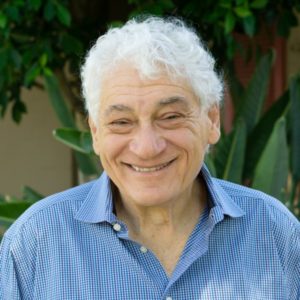After more than 35 years, David Pijawka, sustainable planning professor in the School of Geographical Sciences and Urban Planning, is retiring as full-time faculty. Pijawka has been at the helm of interdisciplinary research at Arizona State University for more than three decades, bringing together policy, sustainability, geographical sciences and urban planning in novel and innovative ways and applying them to community work.
Arriving at ASU in 1982, Pijawka took on a range of critical roles and academic positions over the course of his career. He served as full-time faculty for the School of Public Affairs, the School of Urban Planning and Landscape Architecture, and the School of Geographical Sciences and Urban Planning — establishing a record of excellence in each.
In the mid-1990s, Pijawka served as interim director of the Center for Environmental Studies, predecessor to what is today the Julie Ann Wrigley Global Institute of Sustainability. He took over after Duncan Patten's retirement in 1995 and was succeeded by Charles Redman in 1997. During Pijawka's tenure as interim director, the Center initiated several new interdisciplinary research and outreach programs, expanding relations with other ASU units.
Pijawka was an early proponent of themes like urban sustainability and resilience and was a key figure in advancing sustainability initiatives within ASU. He created and taught one of the university’s largest courses, Sustainable Cities, now with more than 1,000 students per year and taught by two of his colleagues. He is the co-author with Bjoern Hagen of one of the leading textbooks on sustainability in the nation, “Sustainability for the 21st Century.”
At ASU, Pijawka was the principal or co-principal investigator for nearly 100 research grants and contracts, some of which were multiyear and into the millions of dollars, and a prolific author with more than 30 published books, monographs and government reports, averaging about one per year of service at ASU.
